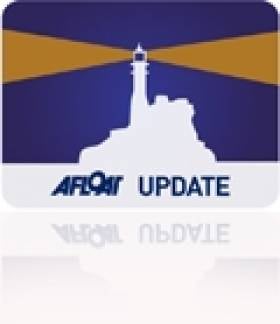Displaying items by tag: key
Key Yachting Issue Their Fastnet Top Twenty
The Key Yachting Fastnet Top Twenty – Grand Soleil 43 Codiam straight in at Number One
For those who love the Fastnet Race, and for many it is the highlight of the offshore season, the 2011 race has delivered on all counts. It has proved a hugely tactical race and competitors have fought for speed in a whole variety of conditions from 30 knots of breeze through to what was almost a complete shut-down in the pressure. Extraordinarily frightening for for some, gut wrenchingly frustrating for others, incredibly rewarding for those who got it right and extremely high-stress for many of the thousands and thousands of ‘virtual spectators’ who have spent the last five days perched on the edge of their office chairs watching the thrills and spills of the race online, whilst the UK economy grinds slowly upwind against the tide.
The fleet this year numbered well over 300 boats, one of the largest race entries on record. Of these, clients of Key Yachting, racing their J Boats and Grand Soleils made up a significant proportion, both in the fully crewed IRC Classes and also in the Double-Handed Class. Of course enormous credit is bestowed by the team at Key Yachting upon each and every skipper and crew member who arrived on the startline last Sunday to take part, irrespective of their choice of craft. However, one simply cannot fail but notice just how well the Js and Grand Soleils performed overall.
The huge numbers of entries, the massive variance in the type of craft taking part and the disparate sailing experience across the competing crews means that everyone who take part in this epic race can consider themselves a winner. Reviewing the race would be a dream job for any political spin doctor; it just depends on the angle of one’s approach. So, for our purposes here, let’s look at the top twenty overall. That’s the first twenty boats of the entire 300+ fleet under the most widely employed rating system in the world, IRC. In this top twenty, the number of Js and Grand Soleils was six, or put another way, 33% of the top twenty best performing crews in the Fastnet Race were sailing a J Boat or a Grand Soleil.
Topping the Key Yachting Fastnet Leaderboard is Codiam, the Grand Soleil 43 OT of Monsieurs Loday and Nicoleau. Codiam was seventh overall under IRC, the best performing Grand Soleil in the race and they won Class IRC 1. This is a formidable racing team and this also happens to be their second consecutive win in IRC Class 1 on the Fastnet: they also took the bullet here in 2009. It’s hard enough to win, but even harder to do it twice. This is an absolutely amazing result.
The J/122 Nutmeg IV, owned and raced by Francois Lognone and his crew were the top J Boat overall in the Fastnet 2011. Another seasoned offshore campaigner, this is a well deserved and hard fought result for the French skipper and crew of this forty footer. Eighth overall translates to third in their class: IRC 2.
The Grand Soleil 43 OT, Quokka 8, the current UK IRC National Champion (having achieved eight straight wins around-the-cans back in July) used the Fastnet Race to prove that these beautiful Italian yachts are far more than one-trick ponies. Can they win inshore? Yes they can. How do they do offshore? Very well indeed: Quokka 8 was tenth overall in the Fastnet this year, a result which is all the more commendable because she was being sailed under charter by Philip Falle and his team from Sailing Logic. What a cracking job they did!
Another J/122, Neil Kipling’s Joopster crossed the finish line in very good shape indeed and dug straight in to the overall scores in fourteenth place, Yves Grosjeans’s bright red forty-three foot J/133 Jivaro was just a few steps behind in eighteenth place overall and Chaz Ivill’s Grand Soleil 54 John B closed the Key Yachting Fastnet Top Twenty.





























































